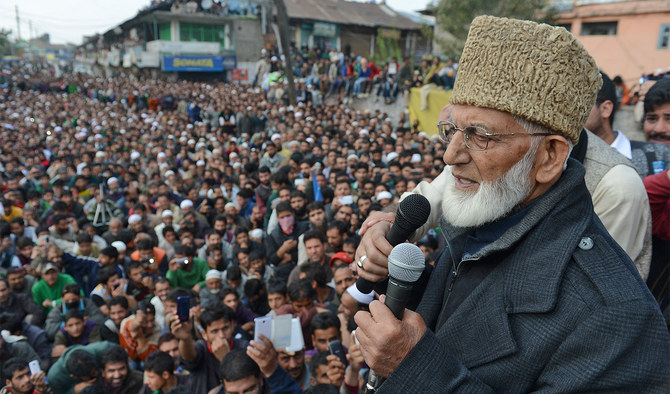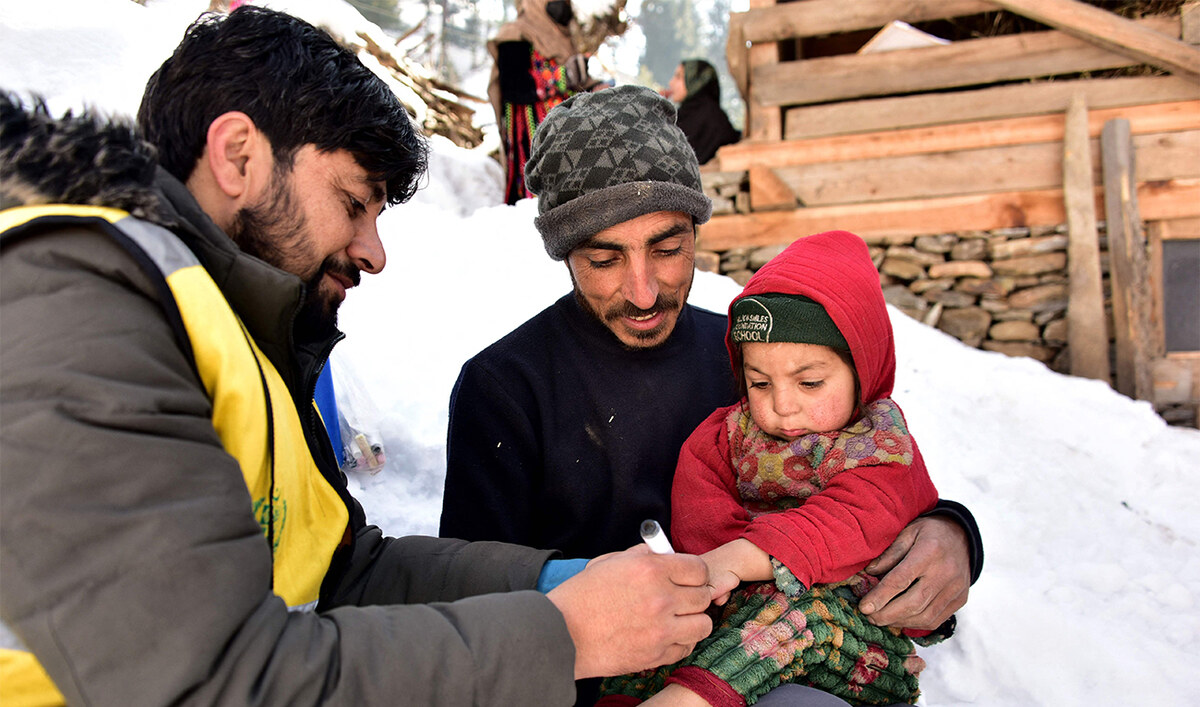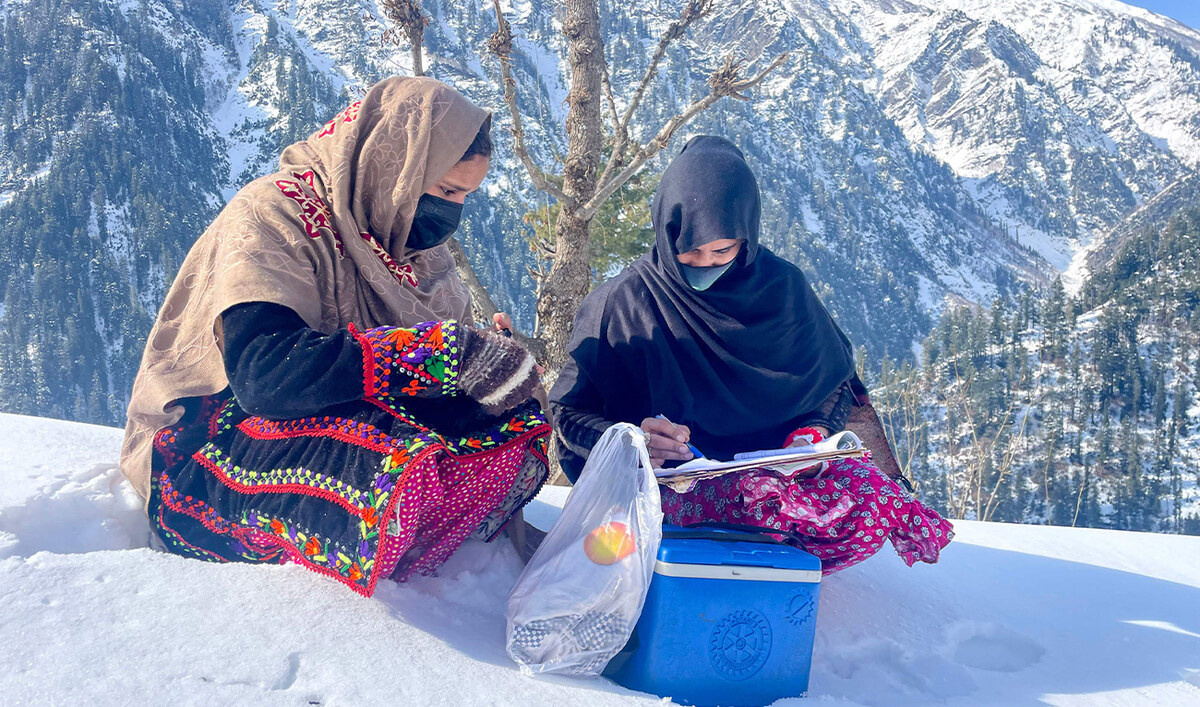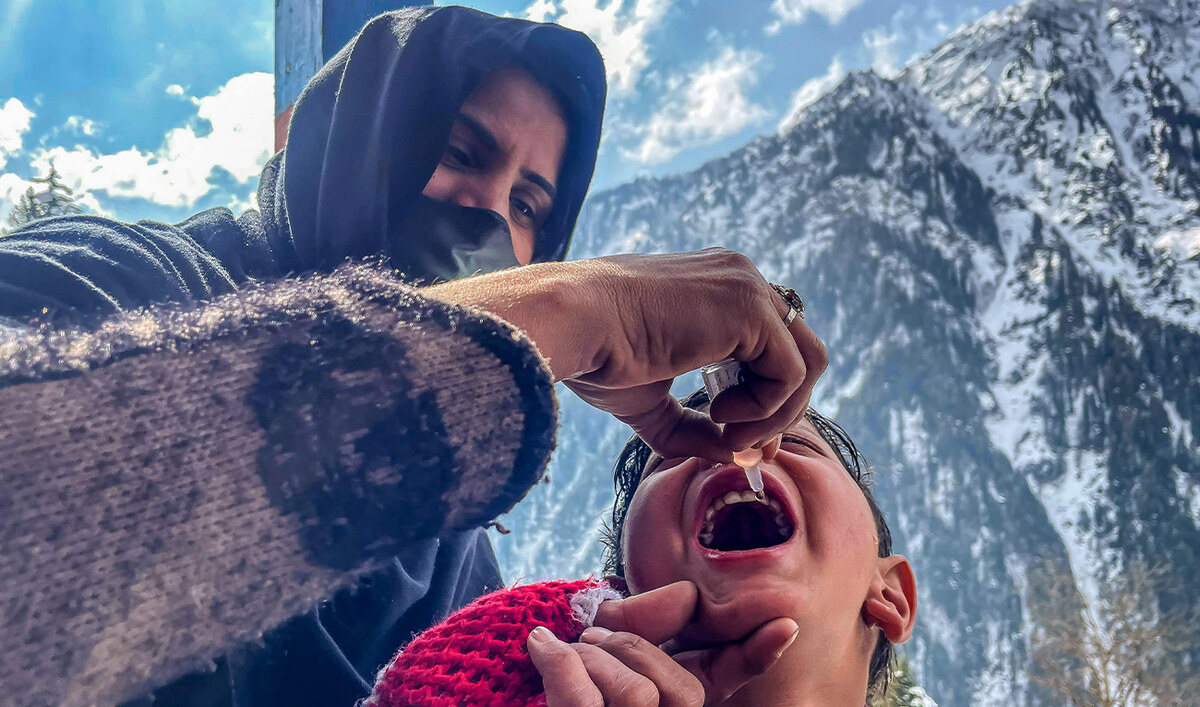ISLAMABAD: Pakistan on Thursday condemned what it called the “snatching” of the remains of Kashmiri leader and former chief of the All Parties Hurriyat Conference (APHC), Syed Ali Geelani, from his family by authorities in Indian-administered Kashmir.
Geelani, who died on Wednesday aged 92, had been a thorn in India’s side since the early 1960s when he began campaigning for the merger of the disputed Himalayan region of Kashmir — administered by India — with Pakistan. The veteran politician was jailed for nearly 10 years after 1962 and often restricted to his home after that.
He was a staunch critic of the sporadic but failed attempts at dialogue between nuclear-armed India and Pakistan who have fought two of their three wars since independence over Kashmir.
According to AFP, Geelani was buried at 4:30 am Thursday at a cemetery near his home in the main city of Srinagar. Only a small number of his relatives were present, including two of his sons, the police source added.
Geelani had wanted to be buried at the Martyrs Cemetery in Srinagar but authorities rejected that request, the police source told AFP.
“Pakistan strongly condemns the barbaric act of snatching of the mortal remains of the iconic Kashmiri leader Syed Ali Shah Geelani from his family,” the foreign office said in a statement, adding that Indian security forces raided the leader’s residence in Srinagar and “snatched” Geelani’s body from his family as it prepared for his final rites.
“They were reportedly told that India would not allow Syed Geelani’s burial at the place of his choosing,” the foreign office said. “Government of India is so afraid of Syed Geelani and what he stood for that they have now resorted to this inhuman act even after his passing away.”
The foreign office called on the international community to take note of this “unprecedented and egregious situation” and hold India to account for what it called a breach of international human rights and humanitarian laws.
Residents in Srinagar said authorities acted out of fear of mass mourning turning into unrest.
“Troops are everywhere, there are barbed wire blockades on every main road,” one resident told AFP.
Meanwhile, Pakistani Prime Minister Imran Khan said Thursday would be observed as a day of mourning and the Pakistani flag would fly at half-mast.
Indian authorities imposed a security clampdown in Indian-administered Kashmir late Wednesday, with troops putting up barbed wire and barricades on roads leading to Geelani’s house in the main city of Srinagar after the family announced the death, AP reported. Hundreds of security forces were immediately deployed and media reports said a curfew would be imposed and Internet services cut.
“If Indian govt thinks by forcing his family to bury him in dead of night will prevent Kashmiris from properly mourning their icon they are mistaken,” Pakistani human rights minister Shireen Mazari said.
Pakistani foreign minister Shah Mahmood Qureshi applauded Geelani for fighting for the rights of Kashmiris “till the very end.”
“May he rest in peace and may his dream of freedom come true,” he tweeted.
“The nation pays rich tribute to his life-long struggle for justice and freedom,” the Pakistani foreign office said on Twitter, describing Geelani as a “true voice and hero” of the Kashmiris struggle for self-determination.
“May his soul Rest in Peace and may he continue to be an inspiration for those carrying his mission forward,” the statement said.
Opposition leader in the National Assembly, Shehbaz Sharif, said Geelani personified the Kashmiri struggle for freedom:
“Torture and long periods of incarceration could not sway him from his mission,” he said in a tweet. “Geelani Sahib’s story is one of sacrifice, determination & selflessness. May his soul rest in peace!”
Opposition Pakistan Peoples Party Chairman Bilawal Bhutto-Zardari called Geelani “another name” for the independence movement in Kashmir, his party said in a tweet.
Sharing a video message on Twitter, Mushaal Hussein Mullick, the wife of Kashmiri leader Yasin Malik, said the Kashmiri Hurriyat leader would always be remembered for his “bravery and truthfulness.”
Former Pakistan cricket star Shahid Afridi also expressed his condolences:
“May we carry on their courage and legacy,” he said in his tweet. “May Allah grant Syed Ali Geelani the highest decree in Heaven. Ameen.”



















